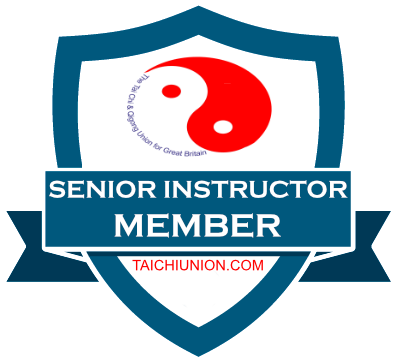What is Tai Chi ?
Most people think of Tai Chi as a wonderful relaxing exercise performed in parks throughout China, in the early morning. This is true to some extent. Tai Chi is relaxing, but it also strengthens the body, improves circulation and is an effective form of self-defence. To learn the form is to merely scratch the surface. As an exercise it can strengthen you both mentally and physically by improving your levels of relaxation and teaching you about correct body alignment.
As a self-defence it works on flowing around incoming force rather than rigid blocking. This overcomes the need for brawn usually associated with martial arts. The holistic nature of this ancient martial art makes it suitable for people of all ages and levels of fitness as it adapts itself to suit your abilities.
The Origins of Tai Chi.
There are many different stories concerning its origins and creation. The most popular legend, which has little factual substantiation, is that of ZHANG SAN FENG, a Daoist who, already having mastered shaolin boxing, caught sight of a crane fighting a snake. Intrigued by the yielding, smooth evasion and darting counter-attacks of both creatures, he was inspired to develop a form of boxing which would embody the natural philosophy of the Dao.
Legend aside, in the middle of the eighteenth century a soft boxing was being taught in the village of Chenjiakou, in the Henan province. This soft boxing was finally popularised by YANG LUCHAN (1780-1873), who, through diligent effort, learnt the Chen family boxing, and then went to Beijing, where he taught the art, in a modified form to the Manchu court. This YANG school of boxing was destined to become the most popular form of TAIJIQUAN (TAI CHI CH`UAN), with the help of YANG CHENG FU, the most widely known descendent of Yang Luchan. It is characterised by large, smooth, flowing movements with an unbroken even tempo, avoiding strenuous over-exertion.
CHENG MAN-CHING.
Cheng Man-Ching became a disciple of Yang Cheng Fu after studying Tai Chi with him and being cured of TB(this was attributed to his practice of this art). From his knowledge of Chinese medicine and further research, Cheng Man Ching simplified the form by removing many of the less important and similar postures, reducing the number of postures to 37 from the initial 108(approx). This was done in an attempt to make Tai Chi more accessible. For more details see the separate section for Cheng Man Ching
Having learnt how to control his or her body through the practice of the solo form, the student then goes on to learn the Push-Hands exercises, practiced with a partner. These exercises teach one how to understand, interpret and neutralise energy; and then, finally, how to exert force.
The serious student of Tai Chi, in order to progress beyond the merely physical, must study the philosophy of the art through reading the "classic" writings of well-known practitioners of the past, such as those mentioned above.
Tai Chi as a Martial Art.
Tai Chi works on relaxation rather than muscular strength and as such is not limited by age or fitness. It works on the use of intrinsic energy (chi) and proper body alignment. Although this sounds a little mystical, it is perfectly obtainable by all who are willing to persevere. On a more accessible level, Tai Chi is close-quarter system which incorporates the use of locks, throws and in-side fighting techniques, making it a most realistic form of self-defence. It is a reactive system rather than an aggressive one; the classics say, "They move first but you arrive first", this means mentally as well as physically.
Tai Chi is not.....
Tai Chi is not an instant health cure nor a ten week self-defence course. It is an art, and like all arts, it takes time and diligent practice to perfect. For those willing to persevere, the benefits are amazing, and are not diminished by the constraints of old age; in fact there are many practitioners around the world in their 80`s and still teaching.
Why learn Tai Chi ?
When asked by a student "What is the most important reason to study Tai Chi Chuan?" Master Cheng replied "The most important reason is that when you finally reach the place where you understand what life is about, you'll have the health to enjoy it".
To find your nearest class please go to our Class List and to attend our workshops please check our events page
Tai Chi Cheng Man Ching from kaimingtaichi on Vimeo.

